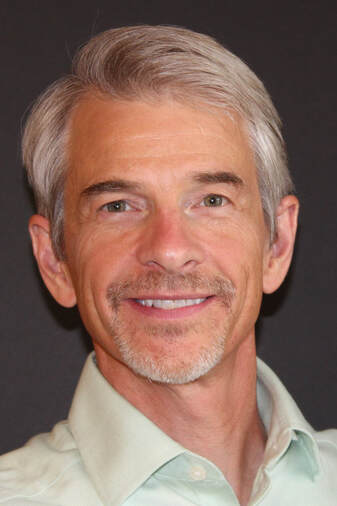|
In a recent article published by USA Today, reports claim that being outdoors can improve health in more way than one. Richard Louv, an advocate of being outdoors states, “Pediatricians are telling me they are not seeing many broken bones in kids anymore. What they are seeing are repetitive stress injuries from using computers and mice.” Additionally, Louv says obesity can be a side effect of an indoor life.
To help parents and children better connect with an active, outdoor lifestyle, USA Today wrote up a ‘prescription’ to try this summer. Here are three of our favorite suggestions for a healthier summer: Try exercising outside more. Studies actually prove that those who exercise outdoors are more likely to stick with it than those who workout inside. And exercise outdoors doesn’t have to be limited to running or doing push-ups. Louv suggests building a tree house or going on a hike. Other activities could include riding bikes, jumping on a trampoline or swimming. Spend time in the sun (with sunscreen). Sun exposure for at least 10-15 minutes a day stimulates your body to make its own vitamin D and improves bone health. Additionally, the National Sleep Foundation claims exposure to morning sunlight can help you sleep better at night. Take a walk. If you are feeling stressed, try taking a walk outside. Victoria Maizes, executive director of the Arizona Center for Integrative Medicine at the University of Arizona-Tucson states, “Being outside seems to tap into the relaxation side of our nervous system and does it in as little as five minutes.” A 2014 National Diabetes Statistics Report released by the Center for Disease Control and Prevention indicates that nearly 29 million people in the United States have been diagnosed with diabetes and an additional 86 million adults have prediabetes.
According to an article in the Los Angeles Times, “Between 15% and 30% of those with prediabetes will go on to develop the full-fledged metabolic disorder within five years, a transition that can sometimes be averted with substantial weight loss and increased physical activity.” On it's website, the Center for Disease Control and Prevention released the following "key findings from the National Diabetes Statistics Report, 2014 (based on health data from 2012):
Dr. James Hendrick of Medical Metabolic Specialists is an expert in preventing and treating diabetes. Due to the new statistics and alarming numbers of diabetic and prediabetic Americans, a lot of you who are reading this post may need to schedule an appointment at our office in Fort Collins, Colorado. If you are looking for a weight loss clinic to help you deal with the causes of being overweight and meet your individual needs, Medical Metabolic Specialists is for you. In a recent article by the LA Times, Oyinlola Oyebode, lead researcher at University College London, claims, “We have shown that those eating seven or more portions of fruit and vegetables daily have the lowest risk of mortality from any cause.” Unless you are consuming at least seven servings of fruits and vegetables a day, you may not be eating enough. A portion can be relatively small though according to registered dietician Andy Bellatti. “A mere half cup of cooked leafy greens counts as a serving, as do roughly a dozen baby carrots or six asparagus spears,” he tells the LA Times.
Eating out and not taking the time to prepare meals are two of the biggest reasons that only about a quarter of American adults have three or more servings of vegetables a day. Jennie Cook, an LA Caterer, recommends stocking your kitchen with fresh produce and making it a priority. She encourages adults to have three servings of vegetables and/or fruit at both lunch and dinner and two servings with breakfast. Read the full study in the Journal of Epidemiology and Community Health. While counting calories and incorporating exercise into your routine may help with short-term weight loss, researchers are finding these remedies do not contribute to long-term weight loss. “We intuitively know that ‘eat less exercise more’ doesn’t work. It’s such simple advice that if it worked, my colleagues and I would be out of job,” says Dr. David Ludwig, director of the New Balance Foundation Obesity Prevention Center at Boston Children’s Hospital. “The uncomfortable fact is that an exceedingly small number of people can lose a substantial amount of weight and keep it off following that advice” (TIME).
According to Dr. Ludwig and his colleague, Dr. Mark L. Friedman, weight loss should not be viewed as something separate from biological functions and the effects of what kinds of food are consumed. “‘Instead of counting calories, we should be focusing on the quality of the food we consume,’ says Ludwig” (TIME). At Medical Metabolic Specialists, this research is core to our practice. As an obesity medicine specialist, Dr. James Hendrick focuses on the prevention and treatment of obesity and its associated conditions. His goal is to help patients understand their obstacles and manage their metabolism to help them lose weight. Unlike traditional weight loss clinics you see advertised, our comprehensive approach addresses the important issues of behavior, nutrition, emotion, disease, and medication along with how they relate to your weight. We don’t just tell patients to exercise and count calories, but rather we use the latest scientific techniques to create a comprehensive, individualized, lifelong weight management program to improve overall health and happiness. If you are ready to start your journey to long-term weight loss, contact us to begin your individualized assessment |
MMSMedical Metabolic Specialists, located in Fort Collins, Colorado, is dedicated to using the latest scientific techniques to create a comprehensive, individualized. lifelong weight management program to improve your overall health. Archives
October 2023
Categories
All
|






 RSS Feed
RSS Feed